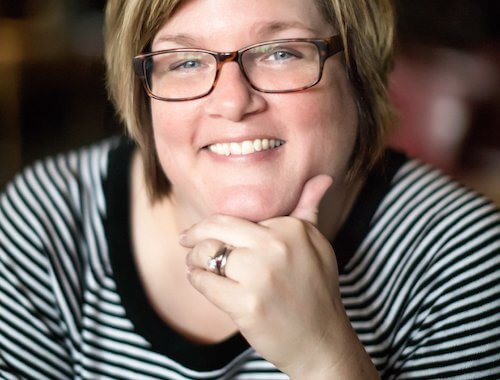Interview with Lori Rader-Day
(Megan Abbott interviewed the highly talented Lori Rader-Day who spoke about the inspiration for her novel The Day I Died )
What inspired you to write The Day I Died?
The Day I Died started as a short story in 2007, after I checked out a book about handwriting analysis at the library. I had no idea that story would take on a life of its own and morph into a novel. I only knew that handwriting analysis was something I hadn’t read very much about. Instead of writing what I knew, I was writing to find out.
I taught myself how to write a novel-length work by writing this book, and then put it away when I couldn’t figure out how to make it what I wanted it to be. I wrote and published two novels before I decided to take the draft of The Day I Died back out. I liked Anna Winger, and I wanted her to have a chance. I had learned a lot about stories and lived a lot more life since my first attempt, both of which helped me turn The Day I Died into something I am proud of.
All of your novels have dealt in some way with the difficulties faced by women in society. Is this something that you are passionate about?
 I’m interested in the issues that plague women in our society, though I don’t believe writing fiction is the only or best approach to righting wrongs. It’s what I can do. And though I’m proud to carry the banner of “social” novel—mysteries generally have taken on that role—I want my novels to be engaging reads, even fun ones. I’m writing the kind of books I like to read about women finding their own way and saving their own lives.
I’m interested in the issues that plague women in our society, though I don’t believe writing fiction is the only or best approach to righting wrongs. It’s what I can do. And though I’m proud to carry the banner of “social” novel—mysteries generally have taken on that role—I want my novels to be engaging reads, even fun ones. I’m writing the kind of books I like to read about women finding their own way and saving their own lives.
In suspense novels we often see the breakdown of relationships over the course of a story but in Anna’s case, she’s building them. Why did you decide to turn this traditional convention on its head?
At the beginning of The Day I Died, Anna is isolated in a narrow existence of her own making. She thinks she has to live that way. She even thinks she prefers it, but as the story unfolds, we see that she doesn’t. She’s lonely, and she’s ready to connect. That was something about Anna’s character that surprised me as I wrote the book. I wrote her as isolated, but she was too much so. She’d made her son the center of her life, but as he grows up and starts to tug away, she needs more. So, I wouldn’t say I was intentionally subverting conventions, but I was following the lead of this particular character. Her version of change was to build a community.
The Day I Died is set in small-town Indiana, which becomes crucial for the story. Why did you decide to set the book here?
Stories, especially mysteries, usually focus on a tight circle. Even if I set a story in a big city, I’d have to narrow down the cast list so that there are a finite number of people to keep track of and suspect. Setting all that aside…small-town Indiana is where I’m from. It’s what I know, but more than that, it’s what I’m interested in. There’s room for all kinds of books featuring all kinds of settings, but a small town, where the people grate up against each other without trying too hard, is my favorite kind to write. For this story, living in a small town is Anna’s reaction to having lived in a big city—and getting too comfortable in the invisibility she enjoyed there.

